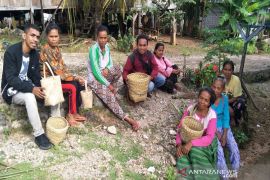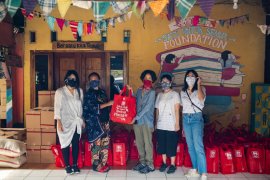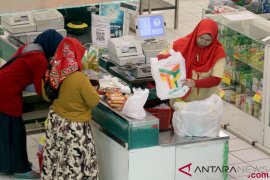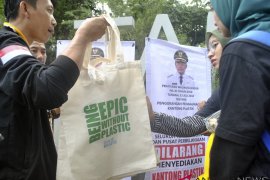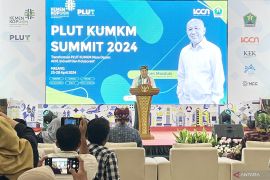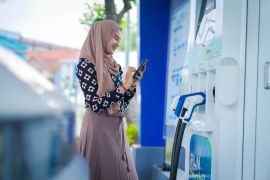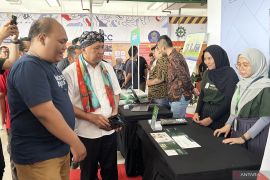They cannot easily be broken down in our environment. Plastic waste has indeed become one of the world`s serious problems.Jakarta (ANTARA News) - Plastic bag is a thing that we have all been familiar with for decades. No matter where we are, it is always with us. In Indonesia, plastic shopping bag is called kantong plastik, keresek, or tas asoy.
Indeed, the plastic shopping bags have been part of our lives. But whether or not we are aware of the impacts of these on our environment is another problem that, in my opinion, really matters us. Why so? They cannot easily be broken down in our environment. Plastic waste has indeed become one of the worlds serious problems.
Considering the serious problem of this plastic waste, the United Nations Environment has encouraged governments around the world to have plastic reduction policies "by targeting industry to minimize plastic packaging and redesign products, and urging consumers to change their throwaway habits" (2017).
Our neighbor, Australia, has been aware of the bad impacts of plastic bags for decades by considering the fact that at least five billion plastic bags are used in the country a year, and, as recorded by Planet Ark -- an Australian environmental watchdog -- "the plastic bags take between 15 and 1,000 years to break down in the environment".
Due to serious impacts of the plastic waste on its environment, Australia has used biodegradable plastic and reusable shopping bags for decades.
In 2005, the Australian Government and Australian Retailers Association (ARA) had even reached an agreement on reducing the use of plastic shopping bags by 50 percents.
Coles and Woolworths, two popular supermarkets in the country, do support the agreement by encouraging their consumers to use recycled cotton and paper shopping bags with which they can use them repeatedly.
A lot of consumers bring their own trolleys or hand bags for their purchased goods, and the supermarkets cashiers are also active in asking their buyers about whether or not they need the plastic bags.
Former Australian Minister for Environment Peter Garrett had even ever planned to ban the use of plastic bags in supermarkets by the end of 2008. His argument was simple at that time: saving the Australian environment because, with a population of only 21 million people, Australia uses quite a lot of plastic bags a year.
If Australia remains supposed to be a big spender of plastic bags, how is about Indonesia, whose total population far exceeds the neighbors?
The size of population is only one factor that makes us different from Australia. Another factor is the peoples awareness of the importance of keeping environment healthy and clean. Indeed, Australia cannot be compared to Indonesia, whose many of its people still think about what to eat today and tomorrow.
Learning from Australias experience, Peter Garretts plan to ban the use of plastic bags in Australias supermarkets in 2008 was challenged by ARA. This retailers association accused the federal government of not offering alternative solutions.
ARA argued that the plan would also bring financial consequences to consumers because retailers would force them to pay for the extra-cost.
The ARA further argued that a better litter management was needed because instead of using garbage plastic bags, certain people made their plastic shopping bags their garbage covers.
A part from the debate, one thing is clear. The Australian government has come up with a concrete solution to ending the use of plastic shopping bags in order to reduce the burden of the continental countrys environment.
Indonesia had also ever attempted to reduce its plastic waste in 2016 by encouraging retailers to charge their consumers for using plastic bags for shopping. However, this policy failed to reach its noble goal when shoppers in the country can again get plastic bags for free.
Sustainable public awareness campaigns for stopping the use of plastic shopping bags are indispensably conducted all over the archipelago if we do want to free Indonesias land and sea from being covered by the plastic waste.
The UN Environment has warned us of the serious threat of at least eight million tons of plastic, which ends up in the worlds oceans, including those of Indonesia, every year.
The government cannot work alone to solve this plastic waste problem. Instead, each of us needs to be part of solutions by more frequently using recycled cotton and paper shopping bags. This big effort should be made from ourselves now! (*)
Reporter: Rahmad Nasution
Editor: Heru Purwanto
Copyright © ANTARA 2017
